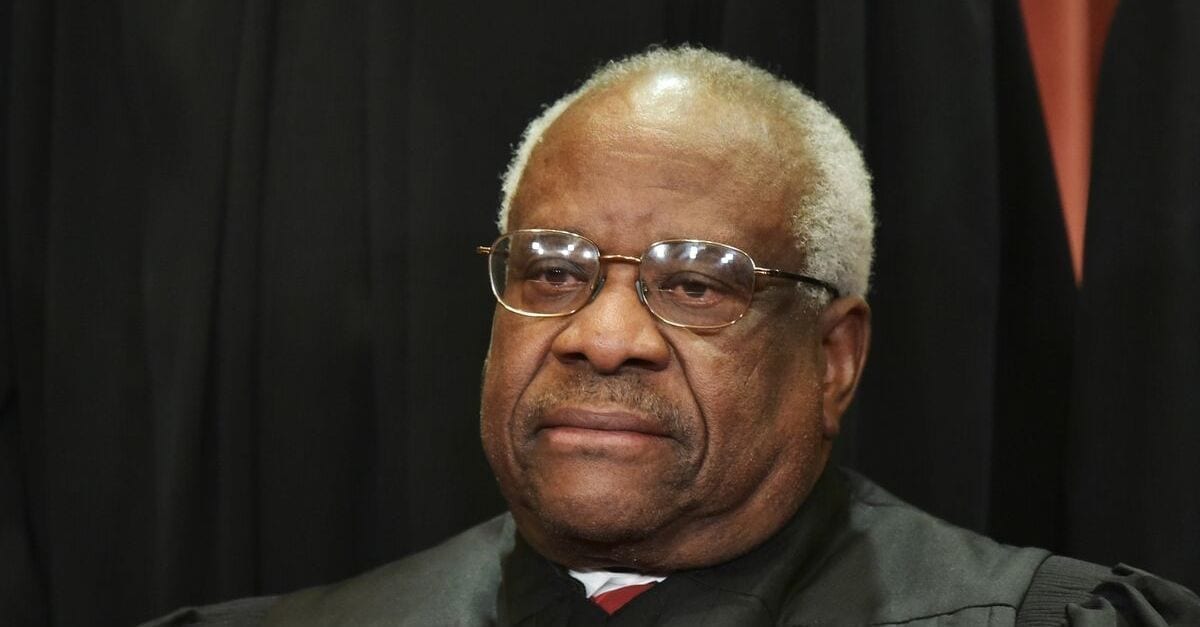Lawyers Compare Justice Thomas’ Dissent on Pa. Election Cases to Rumsfeld’s ‘The Absence of Evidence Is Not the Evidence of Absence’ – By Jerry Lambe (Law and Crime) / Feb 22 2021
U.S. Supreme Court Justice Clarence Thomas was not happy that his colleagues on the high court chose to pass up the opportunity to weigh in on a slew of cases stemming from last year’s presidential elections, penning a highly critical dissent. Attorneys, on the other hand, pointed out that the stalwart conservative appeared to adopt the “argument from ignorance” fallacy with regards to voter irregularities, suggesting that a lack of proof is not enough to show fraud did not occur.
The collective cases at issue challenged the Pennsylvania state judiciary’s decision to extend the deadline for counting votes (originally set at 8:00 p.m. on Election Day by the legislature) an additional three days by citing to a state constitutional provision guaranteeing that elections “shall be free and equal.” Thomas conceded that in this particular case, the Pennsylvania Supreme Court’s decision did not affect the final results in any elections, but said the justices shouldn’t wait until such circumstances arise before setting a legal precedent.
“We are fortunate that the Pennsylvania Supreme Court’s decision to change the receipt deadline for mail-in ballots does not appear to have changed the outcome in any federal election,” he wrote, adding, “But we may not be so lucky in the future.“
Thomas then went on to espouse what he views as the dangers inherently presented by widespread absentee voting, citing several examples of attempted fraud—none of which took place over the latest election cycle—and a 2012 New York Times article to conclude that “the risk of fraud is ‘vastly more prevalent’ for mail-in voting ballots.”



















